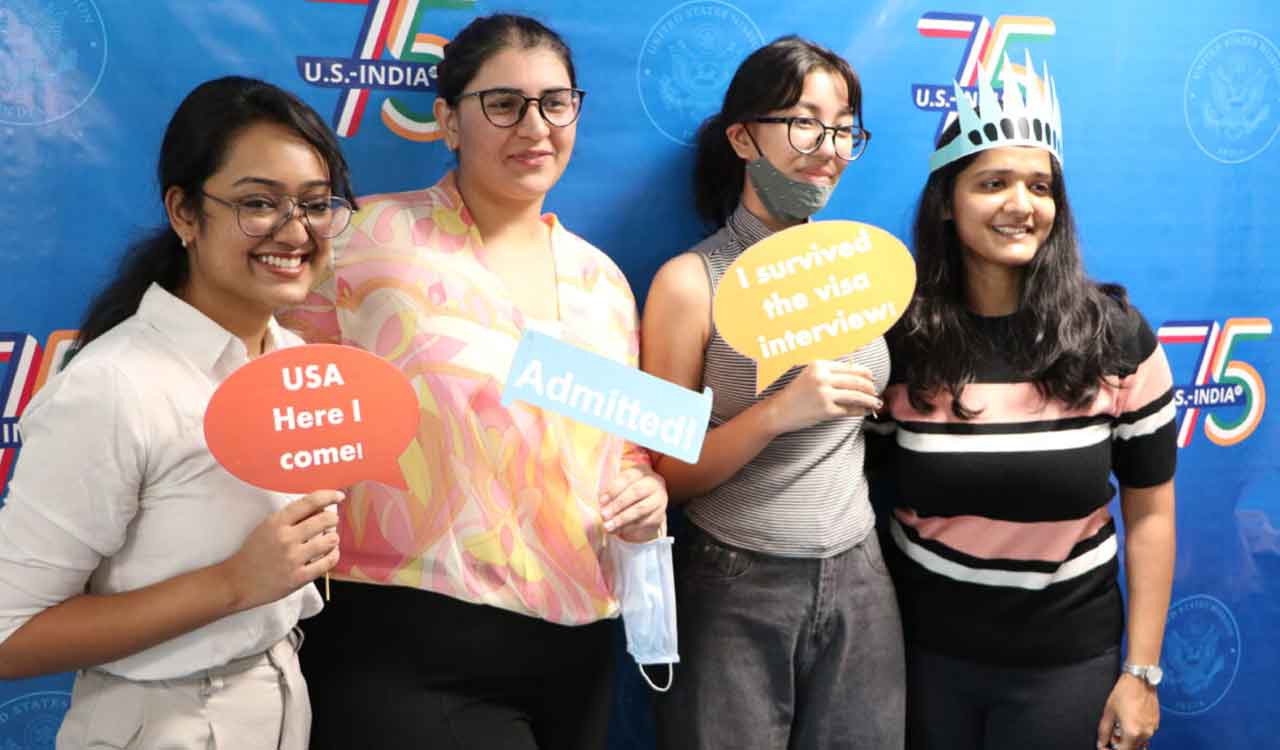
For international students seeking online learning opportunities in the United States, it's important to consider accreditation.
Published Date - 11:36 PM, Sat - 30 September 23
Today, we focus on distance learning programs within the United States higher education institutes. Distance education, often called online learning, offers an excellent avenue to experience the U.S. education system. It’s important to note that international students are generally eligible to enroll in distance education courses offered by U.S. universities.
Distinguishing Full-Time Online Degree Programs from Part-Time Low-Residency Programs
U.S. institutions provide a wide range of full-time undergraduate and graduate degree programs as well as individual courses through online learning.
These programs employ various methods of instruction, including websites, mobile apps, email, telephones, and one-way or interactive audio and video transmissions. Students who enroll in distance learning programs at U.S. institutions must pay tuition fees.
Beyond the standard full-time degree programs and individual courses, some U.S. higher education institutions also offer part-time, blended programs, known as “low-residency programs.”
These programs combine online learning with occasional on-campus attendance. It’s worth noting that students enrolled in full-time online programs are generally not eligible for U.S. student visas. However, if a low-residency program necessitates short-term in-person attendance in the United States, a visa will be required.
Accreditation of Online Learning Programs
For international students seeking online learning opportunities in the United States, it’s important to consider accreditation. Accreditation is a crucial aspect of educational quality assurance. When exploring online programs, students should ensure that the program they are interested in is recognized by an accrediting body.
The Distance Education and Training Council (DETC) is a valuable resource for locating accredited online distance learning programs. You can find information about accredited programs on their website: http://www.detc.org/.
It’s important to verify the accreditation status of the program you are interested in by visiting the university’s website.
U.S. Student Visas for Low-Residency Programs
International students often wonder whether they are eligible for U.S. student visas if they enroll in low-residency programs requiring short-term in-person attendance in the United States.
The answer to this question is yes; international students can be eligible for U.S. student visas (typically F-1 visas) if their low-residency program includes periods of required in-person attendance in the United States.
However, the specific visa requirements and eligibility criteria may vary, and it is advisable to consult with the institution’s Designated School Official (DSO) within the International Student and Scholar Office to ensure compliance with visa requirements.
Key Considerations for Choosing a Distance Learning Program
Before selecting a distance learning program, we recommend that students consider the following questions:
Does a recognized accrediting body accredit the program?
How long has the program been in operation, and what feedback do previous participants have about the program?
What is the typical duration for students to complete the program?
Does the schedule of online lectures align with your current work or study schedule?
What employment opportunities do graduates of the program typically find, and do employers recognize the program?
These considerations will help you make an informed decision about pursuing a distance learning program in the United States, whether a full-time online degree program or a part-time low-residency program with occasional in-person requirements.
– U.S. Consulate General Hyderabad





Leave a Reply